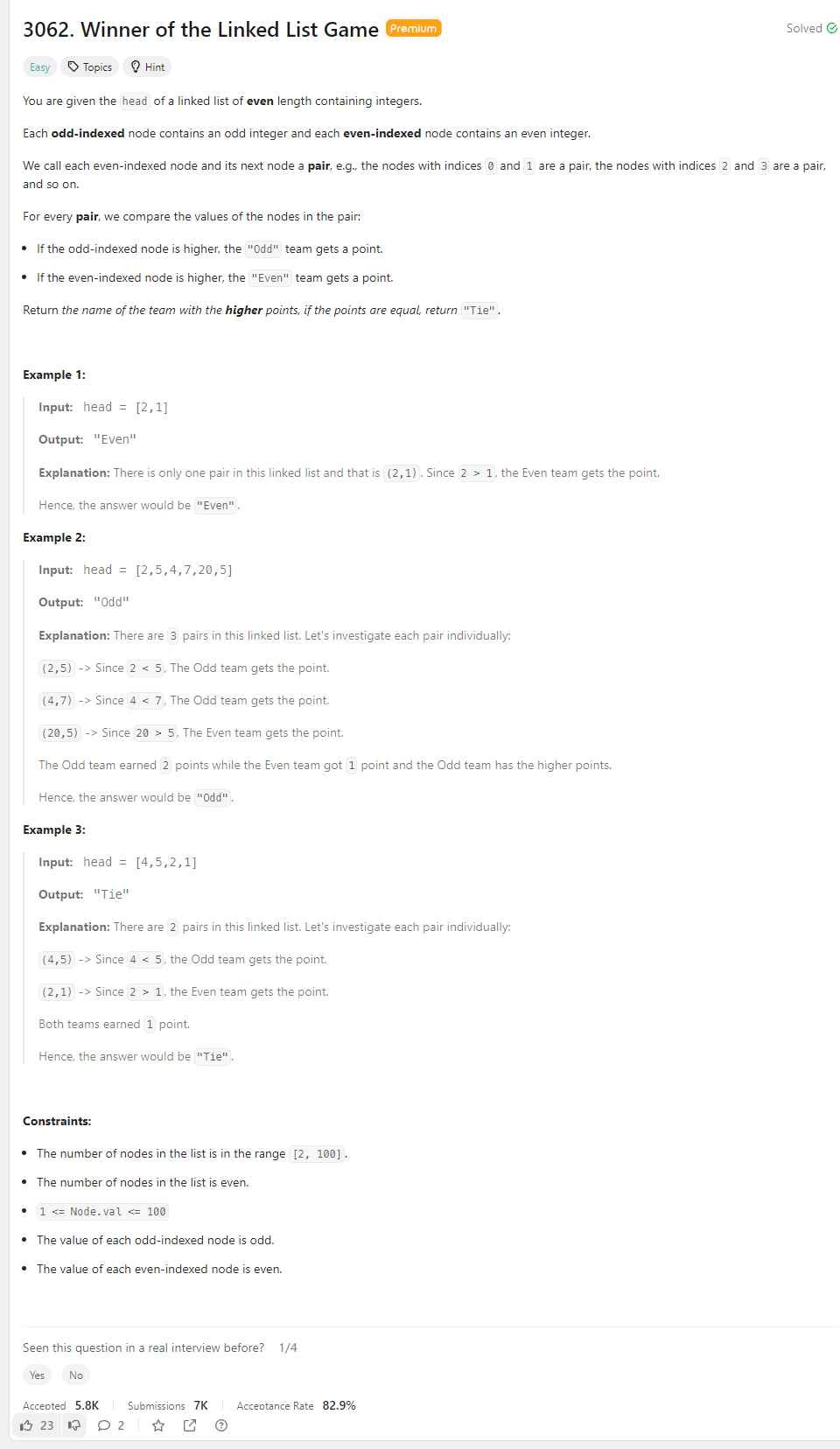Problem of The Day: Winner of the Linked List Game
Problem Statement
Intuition
Use hash map to track the count for even and odd.
Approach
I approach the problem by using a dictionary (points) to store the points for odd and even indices. I iterate through the linked list, comparing values at consecutive odd and even indices. If the value at the odd index is greater, I increment the points for “Odd”; if it’s smaller, I increment the points for “Even.” I update the current pointer to skip to the next pair of nodes. Finally, I compare the points and determine the game result.
Complexity
-
Time complexity: O(n), where n is the number of nodes in the linked list. The algorithm iterates through the list once.
-
Space complexity: O(1), as the space required is constant. The dictionary only stores two integer values, regardless of the length of the linked list.
Code
# Definition for singly-linked list.
# class ListNode:
# def __init__(self, val=0, next=None):
# self.val = val
# self.next = next
class Solution:
def gameResult(self, head: Optional[ListNode]) -> str:
points = defaultdict()
points["odd"] = 0
points["even"] = 0
curr = head
while curr and curr.next:
even_idx_val = curr.val
odd_idx_val = curr.next.val
if odd_idx_val > even_idx_val:
points["odd"] += 1
elif odd_idx_val < even_idx_val:
points["even"] += 1
curr = curr.next.next
if points["odd"] > points["even"]:
return "Odd"
elif points["odd"] < points["even"]:
return "Even"
return "Tie"
Editorial Solution
Approach: Two Pointer
class Solution:
def gameResult(self, head: Optional[ListNode]) -> str:
even = head
even_points = 0
odd_points = 0
# Traverse through the linked list assigning points
while even is not None:
odd = even.next
if even.val > odd.val:
even_points += 1
else:
odd_points += 1
even = odd.next
# Return the winning team
if odd_points > even_points:
return "Odd"
elif odd_points < even_points:
return "Even"
else:
return "Tie"
Approach 2: Point Difference
class Solution:
def gameResult(self, head: Optional[ListNode]) -> str:
current_node, point_difference = head, 0
while current_node:
# Update the point difference based on the comparison of current and next nodes
point_difference += (current_node.val > current_node.next.val) - (current_node.val < current_node.next.val)
# Move two steps ahead in the linked list to the next even node
current_node = current_node.next.next
# Determine the winner based on the final score difference
if point_difference < 0:
return "Odd"
elif point_difference > 0:
return "Even"
else:
return "Tie"
